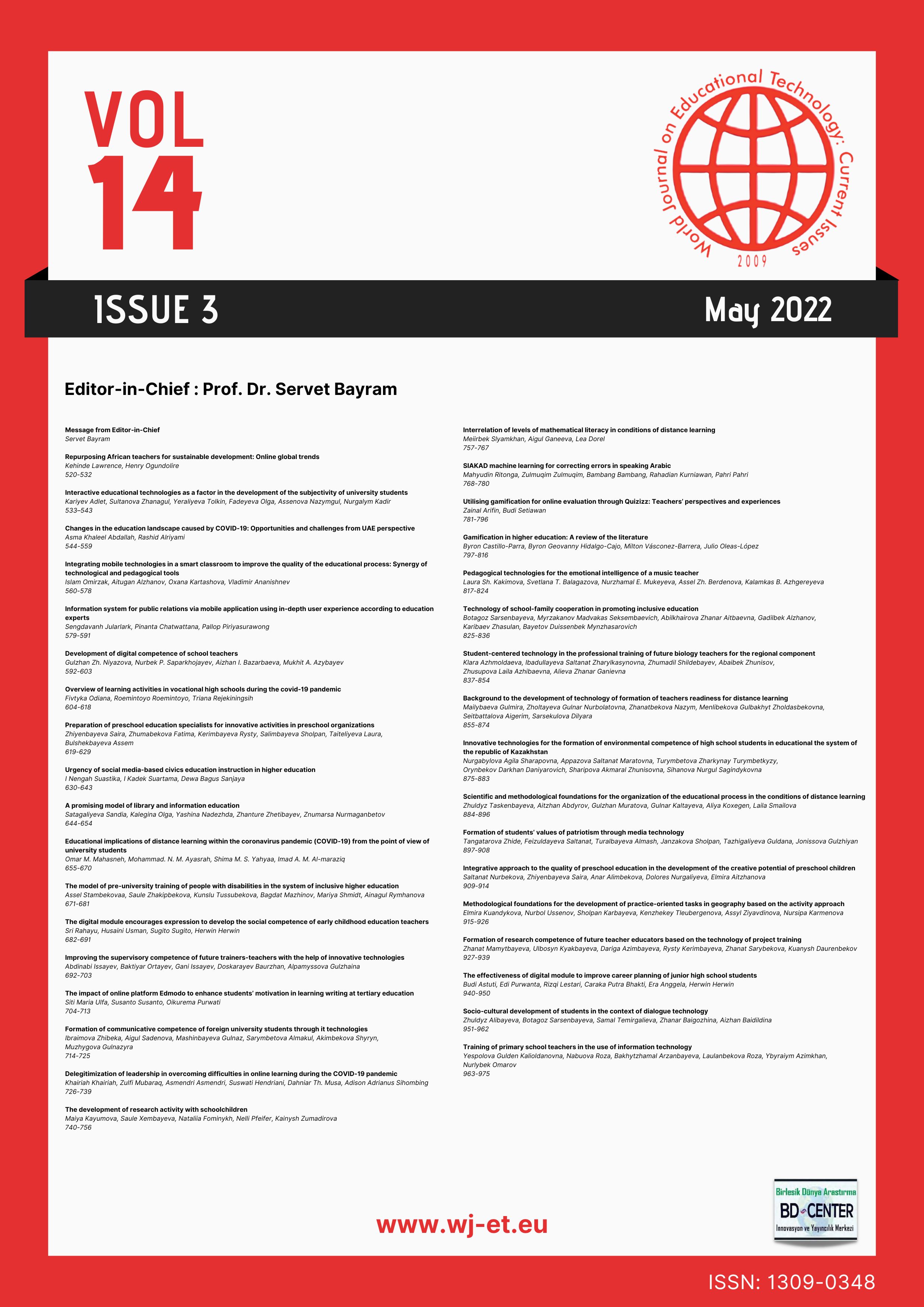Scientific and methodological foundations for the organization of the educational process in the conditions of distance learning
Main Article Content
Abstract
The purpose of this research; It is the evaluation of scientific and methodological foundations for the organization of the educational process in distance education conditions with student views. The research was based on the qualitative research method. The participant group of the research consists of 125 university students studying in various cities and universities of Kazakhstan. Researchers developed a semi-structured interview form to collect data. As a result of the research, the majority of the students stated that they found the learning systems in distance education useful, that using the learning systems in distance education had a great effect on student success, and that they found the measurement and evaluation applications of the learning systems in distance education advantageous. In line with the results of the research, it is recommended to eliminate technical problems, increase the reliability of distance education models in measurement and evaluation, and organize motivation seminars for students.
Keywords: Distance education, methodological foundations in distance education, university students.
Downloads
Article Details

This work is licensed under a Creative Commons Attribution 4.0 International License.
World Journal on Educational Technology: Current Issues is an Open Access Journal. The copyright holder is the author/s. Licensee Birlesik Dunya Yenilik Arastirma ve Yayincilik Merkezi, North Nicosia, Cyprus. All articles can be downloaded free of charge. Articles published in the Journal are Open-Access articles distributed under CC-BY license [Attribution 4.0 International (CC BY 4.0)].
Birlesik Dunya Yenilik Arastirma ve Yayincilik Merkezi (BD-Center)is a gold open-access publisher. At the point of publication, all articles from our portfolio of journals are immediately and permanently accessible online free of charge. BD-Center articles are published under the CC-BY license [Attribution 4.0 International (CC BY 4.0)], which permits unrestricted use, distribution, and reproduction in any medium, provided the original authors and the source are credited.
